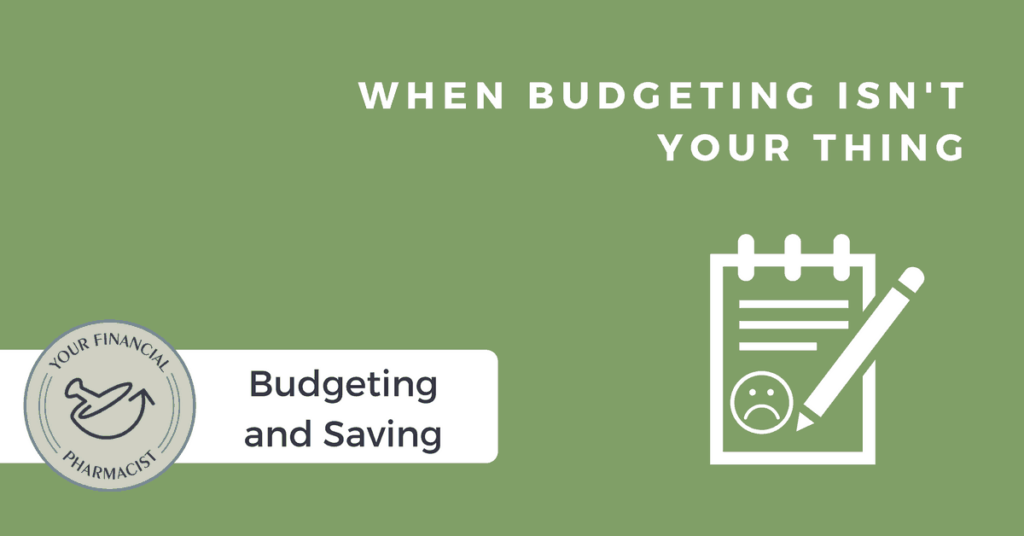In celebration of Mother’s Day, my wife, Jessica Ulbrich, was kind enough to share her thoughts about our financial journey. As many of you know, she is mother to our 3 boys (Samuel, Everett and Levi) and I am forever grateful that they get to learn from her each and every day. As you will read, she chose to focus on budgeting and I am glad she did. This is tough area and not fun by any stretch of the imagination. She has great insight to share and I hope you will enjoy this post as much as I did. If you have any questions for her about this article, you can contact her directly at [email protected]
Budgeting.
Ugh.
It might as well have been a four-letter word in our home.
It felt like someone had taken all of the fun out of living – now with each purchase having to be diligently accounted for, it honestly felt like I was trapped and reveled that we couldn’t keep living as blindly as we were living. At one point, we were outspending our monthly income! While we weren’t living extravagantly, we were living irresponsibly and we needed to do something about it.
And that’s where we started talking about budgeting. When Tim and I set out to become debt-free, the budget was the necessary and essential tool toward achieving that goal. I can still remember sitting down with Tim and pulling up our bank account information online, grabbing spiral notebook and pen and starting to outline our monthly expenses for the first time. Only one of us was excited about this new journey…and it wasn’t me.
Tim looked at the budget as freedom. By knowing and accounting for all of our monthly expenses, we could start to live more. I, on the other hand, looked at it as chains, each envelope seemed dismally short-funded and there was not much room for “fun.”
Can you relate? Maybe you’re feeling the same way. Or maybe you have a spouse that doesn’t like sitting down to talk numbers. Certainly a lot of people must feel that same way as only 52% of Americans earn more than they spend.
After following the budget for a couple years and realizing some of our financial goals, here is how I went from hating the budget to fully embracing all the freedom it could truly provide:
#1 – Appealing to my heart.
Tim and I have three boys. Being a mom is such a gift. I love my role and responsibility as mom and Tim knows this very well about me. So, to help bring me on board he tapped into my love for motherhood to help explain why he wanted to be debt-free and how the budget would help us do that.
Here’s how he communicated it to me:
By living on a budget, we could get out debt faster. Getting out of debt would allow not only for more discretionary income that we could use for our boys, but also allow us to set crazy dreams and goals for them.
Before setting the single goal of becoming debt free, we had multiple goals we were pursuing simultaneously, including funding a college account for each boy. When we started honing in on eliminating debt, we temporarily put a hold on contributions to their college accounts to put all extra income toward debt.
Staying singularly focused on getting out of debt so that we could start helping our boys with college again was one way that I was absolutely willing to stay on track until we were debt free. It was also the first time that I saw our budget the way Tim saw it: a tool toward freedom. Our debt chained us down and prevented us from one opportunity we wanted to gift our children with. The budget was the path to cutting the chains and putting our money where we really wished it could go instead.
Maybe for you isn’t not about college accounts, but what is it that your debt is preventing you from doing? You could probably put down a list of things quickly! What do you dream about doing? Do you want to travel more? Do you want to give more? Do you or your spouse to be able to stay at home with your children? Whatever your goal is, write it down and it will help you stay committed to your budget.
#2 – Budget for some fun, too.
I recently had a conversation with an individual who said that she would love to get out of debt, but didn’t want to sacrifice all the things that she enjoyed. I hear you, it’s really hard (see my initial feelings up above!)
Each month, Tim and I had our own personal envelopes that we could use any way we desired. We could use it to buy new clothes or books (we love Amazon!) get a coffee or dinner out with friends, etc. We also created separate envelopes for date nights, family nights and an envelope for clothing/items for our boys.
At first, there wasn’t much put into each envelope, but the fact that we had dollars earmarked for those specific “fun” items was critical. It meant that we could still do some of things we enjoyed, but this time it was all budgeting and accounted for and would not derail our ultimate goal of eliminating debt.
It also meant our communication on spending was streamlined. So, if I wanted to use my envelope money on another pair of shoes or Tim wanted to use his on yet ANOTHER financial book (love you so much, Tim!), those decisions were individual and we trusted the other to use their monthly allowance as they saw appropriate. No more arguing over personal purchases.
#3 – Give yourself grace and revisit your budget often.
It took Tim and I several months before we finally set realistic numbers for our grocery category. At first, it was frustrating to me that we ran in the “red” on that category for so many months. Since we had never tracked our spending in that area before, we arbitrarily set a number. After months of monitoring receipts and spending, we could finally set an accurate number that we can work within every month. But I can say that it was disappointing when it felt like the budget wasn’t “working.”
It’s important to revisit the budget monthly and to talk about it weekly. Sometimes we have more birthdays in a month so the “gift” category gets bumped up. Some months we are hosting more, so we put some extra in the “grocery” category. Doing this allows us to stay on the same page and plan for where our dollars are going. We have also found that meeting weekly to review expenses helps us catch areas where we are overspending and then we can do a mid-month adjustment to make sure we stay on track.
#4 – Get help and encouragement.
I’m grateful that Tim is passionate and gifted in this area for our household. His commitment and expression of this goal was essential to keeping us on track, as I would have derailed our plan many times over by now. There is no way I would have been disciplined enough to continue to work within our budget if I hadn’t had Tim’s leadership.
It is so important to work together with your partner on this goal. And if you’re single working on a budget, find someone that can help you stay committed to your goal and hold you accountable on your journey.
#5 – Love the budget because it isn’t going away.
I wish I could say that now that we are debt-free that we no longer have to work within a budget. But even on the other side of the journey, we still have new goals to work toward and the budget is once again the tool toward achieving them. Even thought I am not passionate about budgeting, I am very passionate about the freedom living within a budget has provided for us and that is why I will stay committed to it.
After we paid our final college loan payment, we did go back and rework our budget to put a little bit more money in some of the “fun” envelopes I mentioned earlier and generally there is a bit more breathing room. But I know even if we had millions of dollars, we would still be committed to the budget and our goals would just be fueled by bigger and greater dreams!
Financial Homework:
So which kind of person are you – someone who loves the numbers or someone who doesn’t?
What if you love working with numbers and creating the budget and your partner doesn’t? What ways can you appeal to their heart? Find ways to make the journey to your goal realistic and still “fun” along the way.
What if you’re the one resisting the budget, but your partner is on board? Take time to express why this is difficult and how your partner can help you stay motivated on your shared journey.
If you’re working on a household as an individual, who can you bring in around you to encourage you and help you stay on track as your reach your goals? Find someone that will help you stay committed to your plan and check in with you regularly.
Current Student Loan Refinance Offers
[wptb id="15454" not found ]Join the YFP Community!
Recent Posts
[pt_view id=”f651872qnv”]









